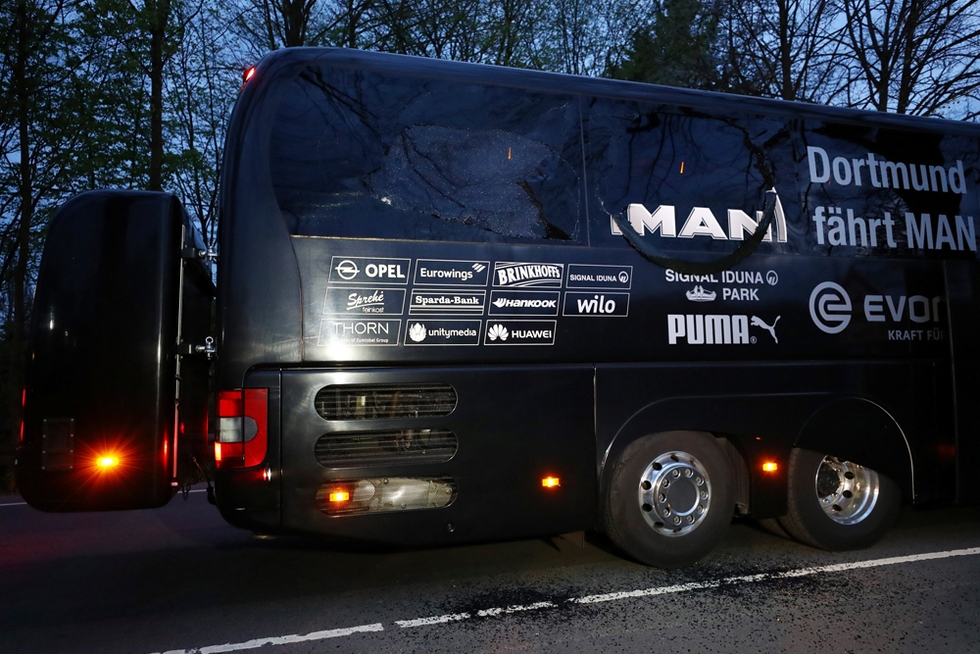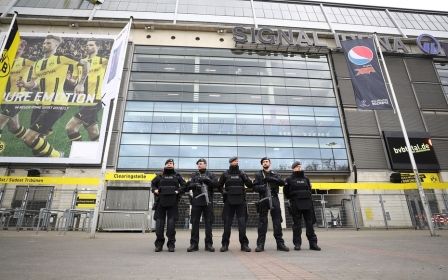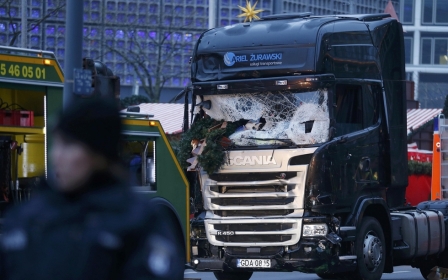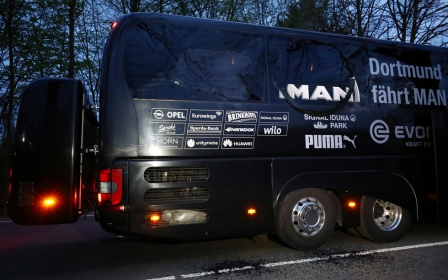German-Russian man arrested over staging Dortmund attack 'to make money'

Police have arrested a German-Russian national on Friday on suspicion of carrying out the attack on the Borussia Dortmund team bus last week, with prosecutors alleging that the bombing was motivated by financial greed.
The football team's bus was targeted with three bombs after it left a hotel to take part in a Champions League quarter-final match. Defender Marc Bartra and a policeman were injured in the blasts, which saw the match postponed until the next day.
According to the Independent, the 28-year-old man, named only as Sergej W, had bought a put option on Borussia Dortmund's shares on the day of the attack, giving him the right to sell the shares for a specified price at a predetermined date.
Borussia Dortmund is the only club in Germany to float shares on the stock market.
According to German media outlets, if the explosives had killed a member of the team and the club's share price dropped, Sergej W could have gained up to €3.9m as a result of a large drop in Dortmund's shares.
Employees of Comdirect, an online bank attached to the German bank Commerzbank, had alerted police of Sergej W's purchase after the bank suspected him of money laundering.
Doubts over IS links
The professional nature of the attack led to German authorities to suspect it was a terror attack after three explosions occurred near the team's bus as it was en route to its stadium for a Champions League match against Monaco last Tuesday.
Three identical printed statements found near the crime scene had mentioned last December's Islamic State (IS) terror attack on a Berlin Christmas market.
The reference to the "caliphate" in the three letters found near the crime scene and last December's IS terror attack on a Berlin Christmas market had led investigators to reaffirm suspicions that the attack had links to IS.
But two other statements then appeared online, claiming the attack was driven by far-left and far-right motives.
After consulting terrorism experts, investigators increasingly began to doubt the authenticity of the three statements.
In a press statement on Friday, Germany’s criminal prosecutor said the faulty installation of the explosive devices may have saved the players’ lives.
While the first and last of the devices had been installed near ground level, the middle one was placed roughly one metre above the ground – too high to cause maximum damage, according to police.
Metal pins fitted to the devices – 70mm wide, 6mm in diameter and weighing 15g each – were found 250 metres from the site of the explosions.
One was found lodged in the headrest of a seat in the back row of the bus.
Suspicious behaviour
According to the newspaper Bild Sergej W won an educational prize for technical engineering in July 2015 and would have had “above-average” knowledge in the field of electronic engineering, potentially allowing him to install the explosives and trigger them remotely on his own.
Police are searching four separate apartments in connection with the attack.
The suspect had first booked a room at L'Arrivée hotel, where the Dortmund team typically stays for home matches, in mid-March.
He had also booked a room for the periods of 9-13 April and 16-20 April, at a stage where it was unclear whether Dortmund’s home match against Monaco would be in the first or second leg of the Champions League quarter-final.
During check-in, the suspect reportedly rejected the first room offered to him because it did not have a window facing the road where the explosives had been installed.
His second room, in the attic, had a clear view of the location.
According to Bild, L'Arrivée employees had become suspicious of Sergej W shortly after the explosion: while other guests ran around the hotel in a panic, he walked calmly into a restaurant and ordered a steak.
New MEE newsletter: Jerusalem Dispatch
Sign up to get the latest insights and analysis on Israel-Palestine, alongside Turkey Unpacked and other MEE newsletters
Middle East Eye delivers independent and unrivalled coverage and analysis of the Middle East, North Africa and beyond. To learn more about republishing this content and the associated fees, please fill out this form. More about MEE can be found here.




